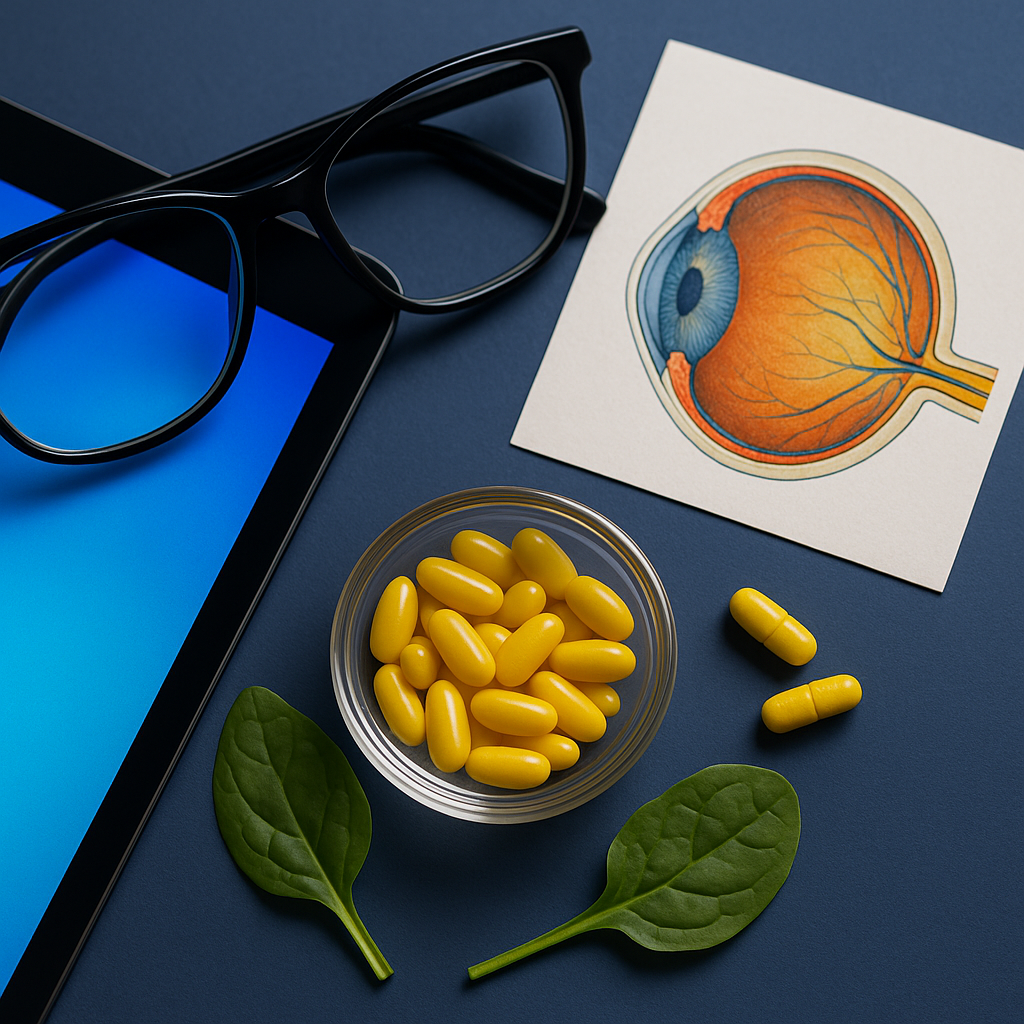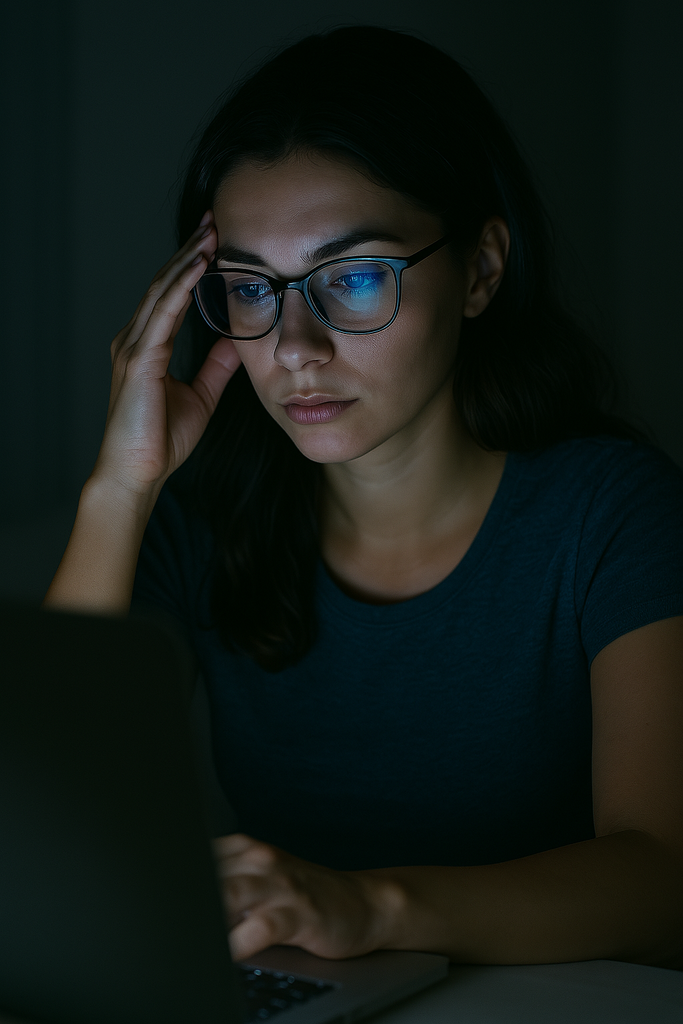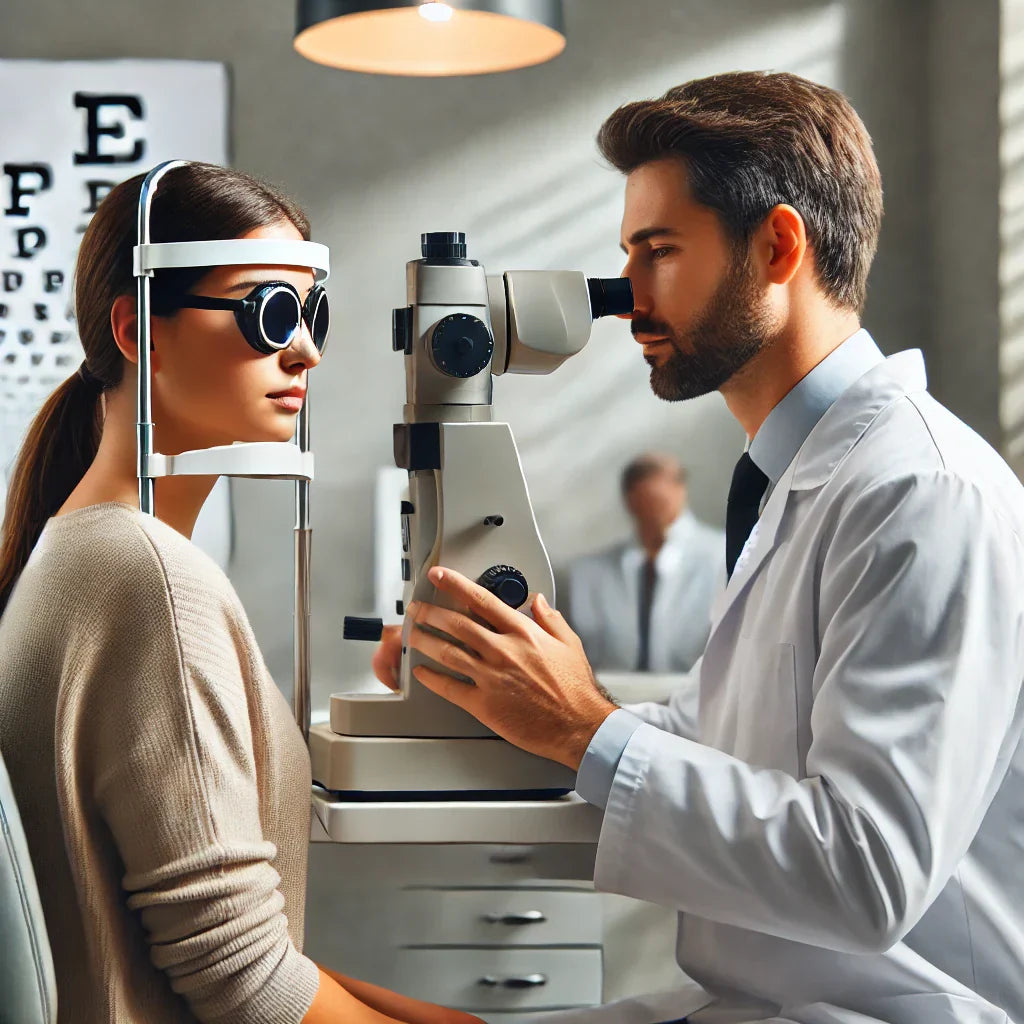News — digital eye strain
The Science Behind Lutein & Zeaxanthin for Screen-Induced Eye Fatigue
antioxidant for eyes blue light protection carotenoids eye health digital eye strain digital wellness eye health nutrients how to protect eyes from blue light lutein and zeaxanthin lutein dosage for eye health lutein eye benefits lutein for eyes macular pigment natural eye supplements natural vision support protect eyes from screens reduce eye fatigue screen fatigue relief visual performance zeaxanthin for screen time zeaxanthin supplement
From smartphones and tablets to laptops and LED monitors, modern life is illuminated by screens. While our digital world offers convenience, it also brings an unintended consequence—digital eye strain. Common symptoms include dryness, blurred vision, fatigue, and headaches, affecting people of all ages. With screen time steadily increasing, many are seeking natural ways to protect their eyes, and that’s where lutein and zeaxanthin come in.
These two powerhouse carotenoids are often associated with long-term eye health, but their benefits go far beyond preventing age-related conditions. Emerging research now shows that lutein and zeaxanthin may offer relief from the daily discomfort of digital eye strain. Let’s explore how these natural pigments work, what the science says, and how to incorporate them into your screen-centric lifestyle.
The Antioxidant King: Why Astaxanthin Is the Ultimate Supplement for Eyes, Skin, and Brain
anti-aging supplements anti-inflammatory supplement antioxidant king antioxidant supplement astaxanthin astaxanthin algae astaxanthin brain astaxanthin dosage astaxanthin for eyes astaxanthin skin benefits blue light protection brain health supplements cognitive supplements digital eye strain haematococcus pluvialis natural antioxidants natural skin support premium astaxanthin uv skin protection visual health
In the realm of powerful antioxidants, few nutrients shine as brightly as astaxanthin. Known for its vivid reddish hue and naturally sourced from microalgae and marine life like salmon and krill, astaxanthin has earned a reputation as the “king of carotenoids.” But its fame isn’t just due to its color—it’s because of its unmatched ability to combat oxidative stress and support vital systems in the body, especially the eyes, skin, and brain.
Unlike many antioxidants, astaxanthin can cross the blood-brain and blood-retinal barriers, giving it unique access to protect neurological and visual tissue. It’s fat-soluble, stable, and significantly more potent than vitamin C or E. Whether you're an athlete, a biohacker, or simply someone seeking longevity and clarity, astaxanthin offers benefits that few other supplements can rival.
How Blue Light Affects Your Eyes and How to Protect Them
20-20-20 rule blue light blue light glasses blue light protection computer vision syndrome digital eye strain eye care eye health supplements eye-friendly diet HEV light kids screen time lutein and zeaxanthin macular health natural eye health night shift mode retinal health screen brightness screen fatigue screen time tips sleep disruption
In our modern digital world, screens are everywhere—from smartphones and tablets to laptops and LED lighting. While these technologies make life more connected and convenient, they also emit high-energy visible (HEV) light, commonly known as blue light. You may have heard concerns about blue light’s impact on sleep, vision, and long-term eye health, but how much of it is true—and how can you protect your eyes without ditching your devices?
Blue light isn’t inherently bad. In fact, it's part of the natural light spectrum and plays a role in regulating our sleep-wake cycles. But excessive exposure, particularly from digital screens and artificial lighting, may contribute to digital eye strain, sleep disturbances, and possibly even retinal damage over time. In this article, we’ll explore how blue light affects your eyes, what the latest science says, and how you can take simple, effective steps to protect your vision and preserve your eye health.
Eyelid Spasm (Myokymia): Symptoms, Causes, and Management Guide
blinking disorder botox for eye spasm caffeine eye twitch digital eye strain dry eye twitch eye fatigue eye strain eye twitch treatment eye twitching eyelid flutter eyelid spasm eyelid twitching magnesium deficiency myokymia natural eye remedies neurological twitching sleep and eye health stress and eye twitching what causes eye spasms
That sudden, repetitive twitch in your eyelid might feel alarming, but chances are it’s a harmless and temporary condition known as eyelid myokymia. Often described as a flutter or spasm of the lower eyelid, this phenomenon can occur in healthy individuals due to a variety of lifestyle and environmental factors. Though usually benign, persistent or recurrent twitching can become distracting and even anxiety-inducing if left unaddressed.
Understanding what causes these involuntary muscle movements and how to manage them can make a big difference in daily comfort and peace of mind. In this article, we’ll take a close look at the symptoms, causes, and effective strategies for managing eyelid spasms. We'll also discuss when these twitches might signal something more serious, and how to distinguish typical myokymia from other neurological conditions.
Don't Wait for Problems: The Importance of Regular Eye Exams
blue light children's eye exams contact lenses vs glasses digital eye strain eye care eye doctor eye exams eye health tips glaucoma macular degeneration optometrist senior eye health UV protection for eyes vision check vision health
Many people take their vision for granted until they start experiencing problems. However, waiting until issues arise can often mean it's too late to prevent serious conditions like glaucoma, macular degeneration, or diabetic retinopathy. Regular eye exams are not just about getting a new prescription for glasses or contacts; they are essential for detecting early signs of diseases that could lead to permanent vision loss.
Beyond eye health, routine checkups can also reveal underlying systemic health problems such as high blood pressure or diabetes. Whether you have perfect vision or wear corrective lenses, scheduling an eye exam should be part of your regular healthcare routine. This article explores the importance of eye exams, what they can detect, and how often you should get checked to maintain optimal eye health.





